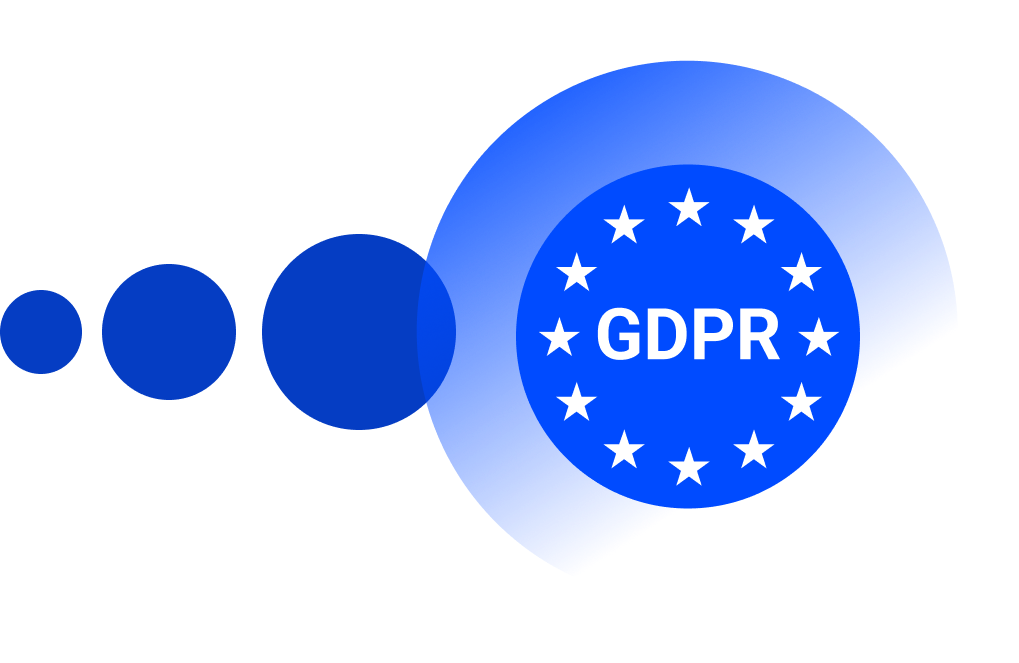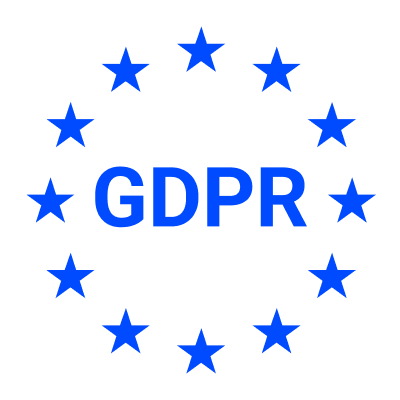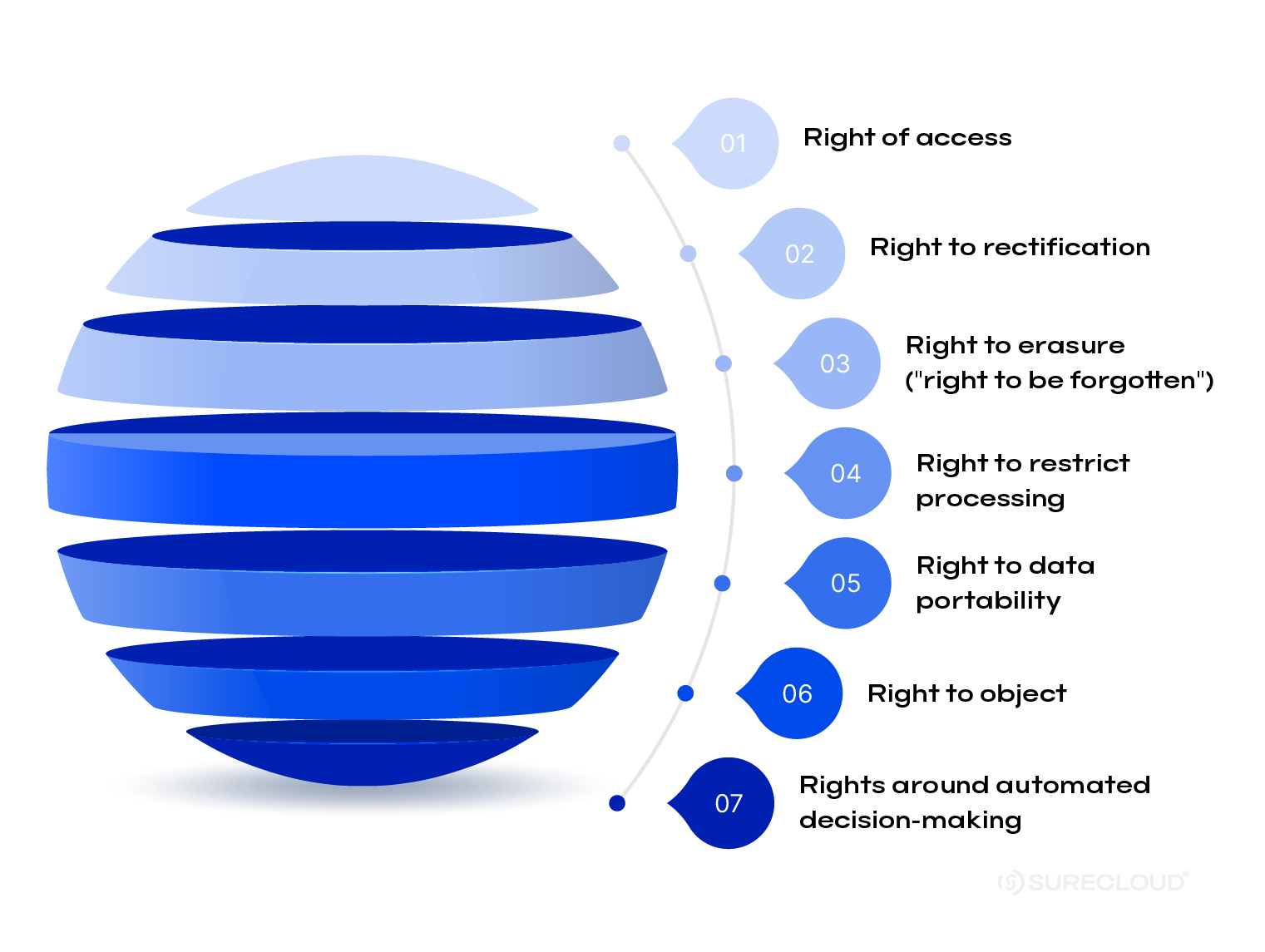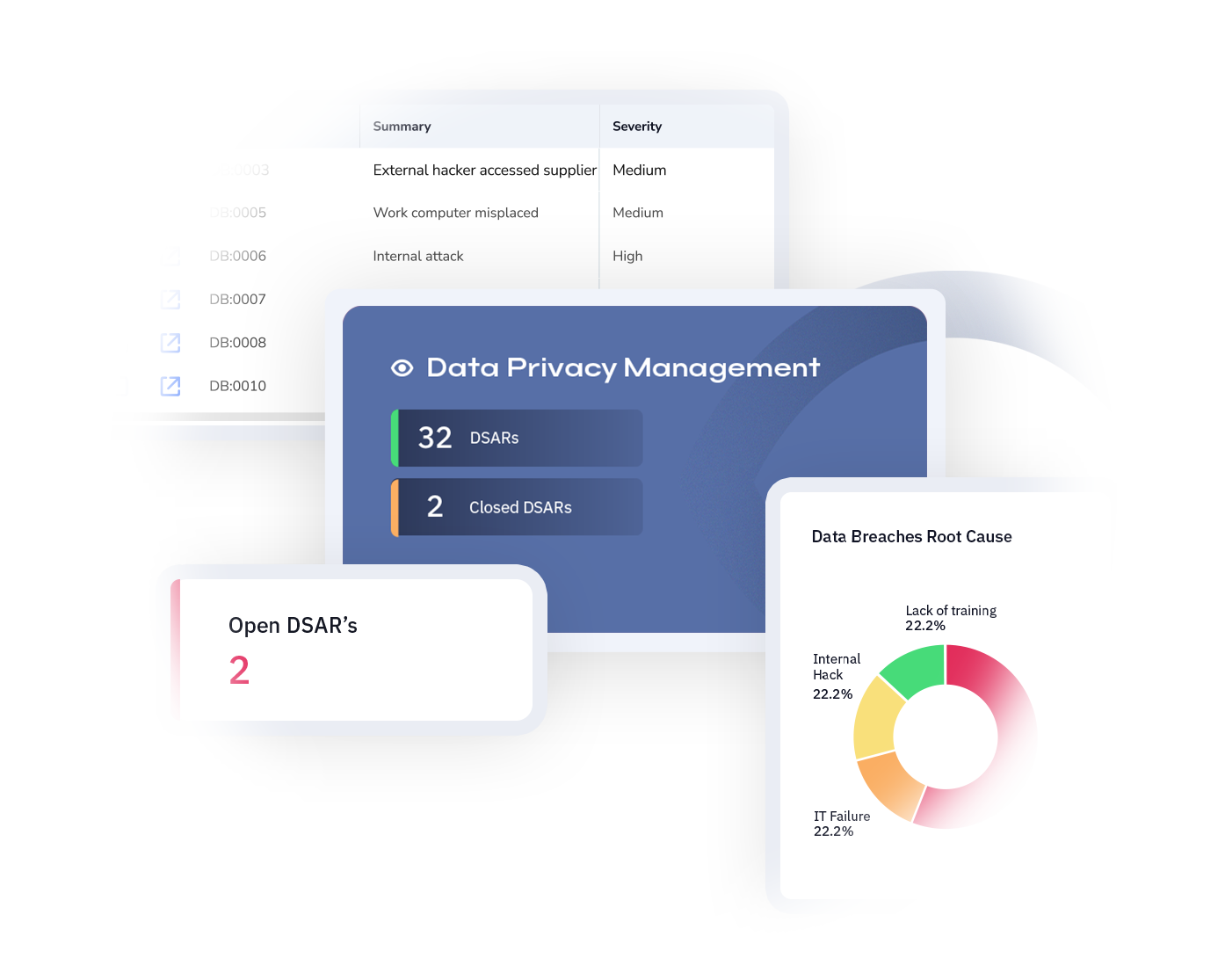GDPR Compliance: Rights, Obligations & Accountability
See how SureCloud helps your organization stay GDPR-compliant—simplifying data protection, subject rights, breach response, and proof for audits.

Trust Badges





What Is GDPR?
The General Data Protection Regulation (GDPR) is the global benchmark for personal data privacy and security. In force since May 25, 2018, GDPR (Regulation (EU) 2016/679) sets strict rules for how organizations collect, use, share, and protect personal data. It replaced the old Data Protection Directive—raising the bar for privacy and accountability across Europe and beyond.
GDPR applies to any organization that processes personal data about people in the EU or EEA—even if your business is located outside Europe. If you offer goods or services to EU residents, or monitor their behavior online, you are required to comply with GDPR.
Your role matters:
- Controller: If you decide why and how personal data is processed, you are a controller—responsible for ensuring GDPR compliance across all data activities.
- Processor: If you process data only on another organization’s instructions, you are a processor—with specific legal duties, but the controller is ultimately responsible for compliance.

Core Principles of GDPR
GDPR’s seven principles are at the heart of every privacy program. They shape your policies, your risk assessment, your retention rules, and your compliance evidence.
Many compliance failures come from over-collecting data, not having a clear purpose, or not deleting information when it’s no longer needed. SureCloud makes it easy to turn these principles into practical, trackable processes.

Core Principles of Responsible Data Use
- Lawfulness, fairness, transparency: Collect and process data only for valid reasons and be upfront with people about how their data is used.
- Purpose limitation: Use personal data only for the specific, explicit purpose you declared.
- Data minimization: Only collect the data you actually need.
- Accuracy: Keep data up to date—fix mistakes promptly.
- Storage limitation: Don’t keep data longer than necessary.
- Integrity and confidentiality: Protect data with robust security measures.
- Accountability: Be ready to show how you follow every principle at all times.

Rights of Data Subjects
GDPR empowers people with clear rights over their data. Your organization must respond to requests quickly and keep a full record of every action.
- Right of access: People can ask to see their data and how it’s used.
- Right to rectification: Correct or complete their data on request.
- Right to erasure (“right to be forgotten”): Delete personal data when no legal reason remains to keep it.
- Right to restrict processing: Limit data use in certain situations.
- Right to data portability: Provide data in a portable, common format if requested.
- Right to object: Individuals can object to how their data is used, including for marketing.
- Rights around automated decision-making: Give explanations and allow human intervention.
Legal Bases & Controller/Processor GDPR Obligations
Every processing activity needs a legal basis: consent, contract, legal obligation, vital interests, public interest, or legitimate interests.
Controllers must:
- Build privacy by design/default into every process
- Keep up-to-date records of processing activities
- Complete DPIAs for high-risk activities
- Oversee processor and vendor compliance
- Appoint a DPO if required
Processors must:
- Process data only as instructed
- Keep data secure and help controllers demonstrate compliance
- Maintain required contracts
Six Lawful Bases for Data Processing
-
Consent
-
Contract
-
Legal obligation
-
Vital interests
-
Public interest
-
Legitimate interest

Data Breach Notification & Incident Response
If a data breach occurs, GDPR requires you to act fast.
Most breaches must be reported to the relevant authority within 72 hours, and to affected individuals if there’s a high risk.
Steps:
- Investigate and contain the breach
- Assess the risks
- Notify the supervisory authority and individuals (if needed)
- Record your actions and outcomes
GDPR is enforced by data protection authorities in each EU country. Fines can be severe—up to €20 million or 4% of annual global turnover, whichever is higher (Bloomberg Law).
Did you know? In 2023, GDPR fines across Europe totaled over €2.1 billion. The largest single fine was €1.2 billion. (European Data Protection Board)

How SureCloud Supports GDPR Compliance:
- Assess: Identify your data flows, gaps, and risks with built-in GDPR assessments and templates
- Implement: Build and manage policies, automate processes for rights requests, breach management, and evidence collection
- Monitor: Use dashboards to track requests, breaches, and compliance status in real time
- Report: Generate audit-ready documentation for regulators and clients with just a few clicks
The Benefits of GDPR Compliance with SureCloud
Frequently Asked Questions
What is GDPR?
The General Data Protection Regulation sets rules for handling personal data of people in the EU/EEA. It covers how you collect, use, store, and share data, and it grants data subject rights you must support.
Who must comply with GDPR?
Organizations in the EU must comply. So must companies outside the EU that offer goods or services to EU residents or monitor their behavior. If you process EU/EEA personal data, GDPR compliance likely applies.
What are the GDPR principles?
Lawfulness, fairness, transparency, purpose limitation, data minimization, accuracy, storage limitation, security, and accountability. These GDPR principles guide every processing activity.
What are the GDPR data subject rights?
Access, rectification, erasure, restriction, portability, objection, and rights related to automated decision-making and profiling. SureCloud helps you handle these data subject rights with SLA-driven workflows.
What are GDPR obligations for controllers & processors?
Controllers decide why and how data is processed and must ensure privacy by design, lawful bases, records, DPIAs, and vendor oversight. Processors act on the controller’s instructions and must follow contracts, protect data, and support requests and audits.
How are GDPR fines & penalties applied?
Authorities can issue warnings, orders, and fines up to €20 million or 4% of global annual turnover. Severity depends on the breach type, intent, and response.
How does SureCloud support ongoing audits?
With GDPR compliance tools for evidence, approvals, and reports. You can show principles in action, prove lawful bases, and export RoPA, DPIA, DSAR, and incident logs on demand.
What is a GDPR risk assessment?
It identifies risks to people’s rights and freedoms for each processing activity. You score impact and likelihood, then add safeguards. SureCloud gives you templates, scoring, and clear owners.
.png)







_HighPerformer_Enterprise_HighPerformer.png)








